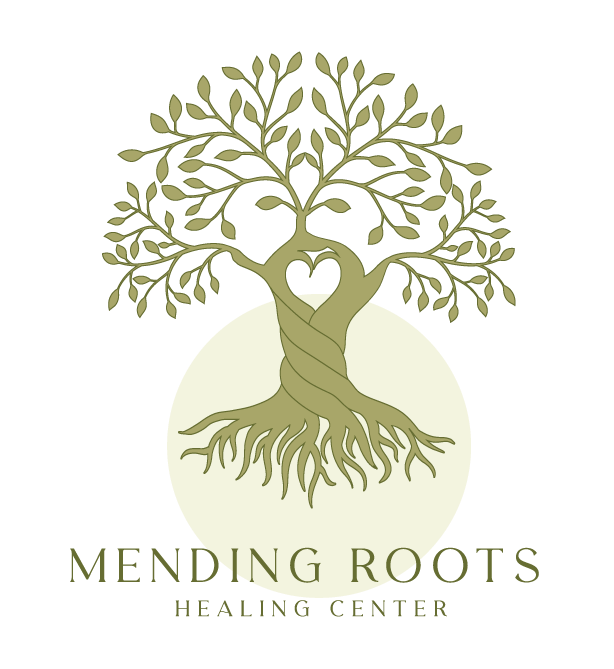What is Depression?
Depression or depressive feelings can seem so overwhelming to the sufferer. One of the worst things about depression is that it causes so much disruption to functioning. Depression can lead to missed work, school or social events. The individual suffering can want to continue with the normal events of their day-to-day life, but can be so downtrodden with the feelings of depression that they constantly find themselves having to miss or cancel things they normally love.
Showing up for even the simplest things in your life can seem so hard during a depressive episode.
Brushing your teeth, showering, eating, and cleaning your house fall to the wayside. Even the thought of having to do these chores can lead to dread and overwhelm and send you right back to your bed.
It’s not unusual for someone struggling with depression to completely lose their appetite and as a result, appear gaunt and unwell. It is also not unusual for the opposite to happen – to overeat to fill the gaping space of sadness depression can create. Depression can impact your worldview. Some of the harder emotions that accompany depression can eat away at our belief in ourselves, humanity and the world at large.
Some of the Big Feelings That Accompany Depression...
Commonly, sufferers of depression will experience big feelings that can be part of the overwhelm experience.
One of those big feelings can be emptiness. When depression is accompanied by emptiness, it can feel like when you try to feel inside yourself, there is nothing there: just a void of sorts. Some people describe the feeling as a big hole, or like a sense of nothingness. This feeling can lead to troubling thoughts, and the pattern of hard feelings and complicated thoughts can create a vicious cycle of dread and unease.
Loneliness has been found to be quite correlative with depression. We currently live in a world in which we are largely disconnected. We think that we are very connected because we have so many friends on social media. In reality, we are alone and lonely more than ever before because we are staying home and watching people connecting and living their lives, while we remain home as lonely as ever.
Hopelessness. It’s hard to even type that word without feeling the weight of it. When depression is accompanied by feelings of hopelessness (which it very frequently is), it can lead to thoughts of concern about “what is the point of living?” Without feelings of hope, despair can begin to creep up and an individual can find themselves contemplating or considering suicide. If you find yourself that deep in despair, please reach out for help immediately. Sadness, sometimes deep wells of sadness often overtake someone struggling with depressive symptoms, and can sometimes feel like they have a bottomless well.
Someone experiencing ongoing apathy may have trouble getting excited about things that used to be exciting. They may have trouble looking forward to upcoming events and even struggle with the desire to show up for loved ones or work.
How Therapy Can Help...
Regaining your power is an essential piece of healing from depression. Therapy can help by creating a map back to yourself. Many people report feeling better after the first session. As those good feelings begin to deepen and grow, people often experience a sense of empowerment because they are the driving force in creating their own healing and good feelings.
Therapy can also help you rebuild some of the relationships that may have been affected by longstanding depression. Hard feelings like we mentioned above and challenging thoughts about yourself and the world can cause difficulties in relationships.
Depression can very much be an interpersonal issue. Once we rebuild our belief in ourselves, we can begin to rebuild our relationships. Treatment for depression can plant new seeds of hope where there formerly may not have been much. With hope, and a fresh outlook on life, we can start to engage fully in our lives. Being fully seen in a wholly validating relationship, such as the therapeutic relationship is a salve that can being to heal the sad and empty spaces left by depression.
At Mending Roots Healing Center, we are committed to getting to the heart of the problems our clients bring to us. We will help you think differently and feel differently about yourself by helping you recognize your value and purpose in this life. Our therapists can help you find the root of your depression by alleviating trauma and stuck beliefs about yourself and by helping you heal attachment wounds from your past.
Some Concerns About Depression Treatment...
“I’m not sure I will be able to get any help. I’ve already talked to so many people about my depression and I am still feeling so bad.”
Talking with a therapist is not really at all like talking to a friend or loved one. A therapist may have qualities that you might seek in a friend, but they aren’t a friend and as such, can provide support, education and lead you to healing without any of the hooks our relationships outside therapy might have. The objectivity a therapist provides and the big picture frame in which they see your life gives them a unique perspective that is reflected to you. This reflection opens new pathways in your brain, where the behavioral changes necessary to heal depression are born.
“The thoughts I have about myself are so scary and I am ashamed of myself. I don’t think I’ll ever be able to share that with anyone.”
Therapists are so good at not being judgey. It’s almost like they have a degree in it! With the help of your therapist, you will create your own timeline of when you start to talk about the hard thoughts and feelings that have been associated with your depression and, at your pace, you will continue to open those locked doors. Conversations about shame are quite healing as they open the door on the darkness that shame can live within. Oftentimes having a space to share those hard feelings lessens the burdens of depression.
“I’m on medication and that’s not helping. I’m worried I won’t be able to ever feel better.”
Medication and therapy are vastly different approaches to mental well-being. Many people find that the combination of medication and therapy is the most helpful approach to treatment resistant depression. The therapists at Mending Roots Healing Center can coordinate with your psychiatric provider to engage in a team approach to healing that can be the most helpful.
“I’ve felt like this my whole life. This is just how it is.”
One of the few things in life we can count on is change. You can change too! As a matter of fact, you have changed, and you are changing right now. Your therapist can be your agent of change and your therapy can be the environment in which that change occurs. In the beginning, you may borrow hope from your therapist and as you begin to get back to yourself, hope will grow in you. Your life may never be perfect, no one’s is, but you and your therapist can begin to illuminate how you live your life with depression, how you cope with the difficult days and most importantly, how you become more compassionate towards yourself.
Connect with a therapist at Mending Roots Healing Center to learn more about how you can start to heal your depression and feel more like yourself.
“There is hope, even when your brain tells you there isn’t.” – John Green
LGBTQ+ AFFIRMING PRACTICE | ANTI-RACIST PRACTICE
West Location
East Location



